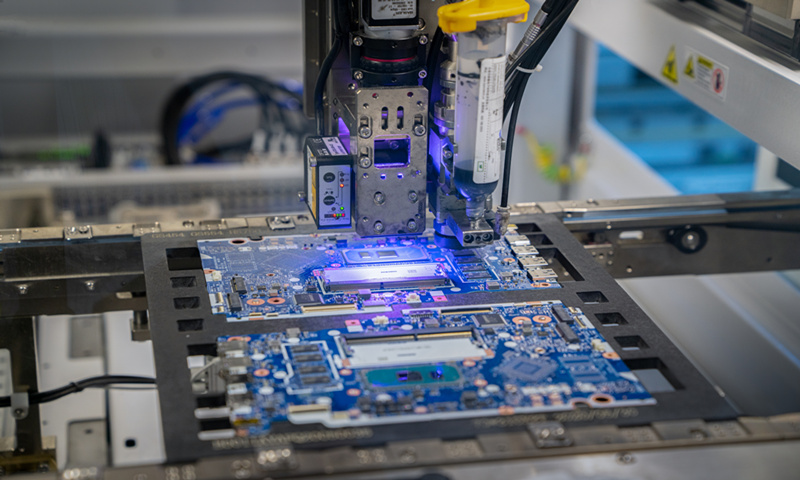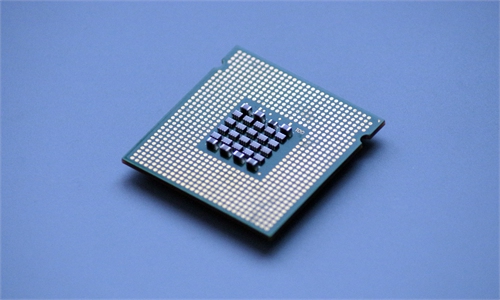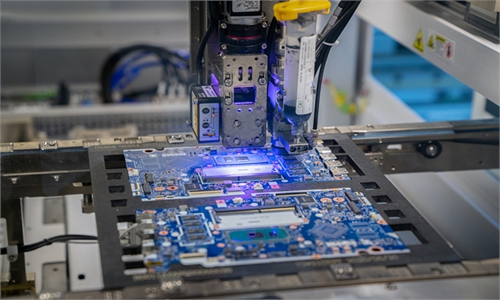
A chip manufacture machine Photo: VCG
US President Joe Biden's call to manufacture semiconductors in the US to protect its supply chain and revitalize its manufacturing sector, made in a virtual event on Monday, reflects the US' strategic adjustment in further containing China by severing global industry cooperation, Chinese experts said on Wednesday.
Biden's plan also sounded the alarm on China's need to further pursue independent research and development in the chip sector and become self-reliant, experts noted.
"These chips, these wafers… batteries, broadband - it's all infrastructure. We need to build the infrastructure of today and not repair the one of yesterday," Biden said at the event, held to address the global semiconductor shortage that has affected many key industries.
"The plan I propose will protect our supply chain and revitalize American manufacturing," Biden told the event, where competition with China was highlighted, adding that China was "aggressively planning to reorient and dominate the semiconductor supply chain."
Ma Jihua, a Beijing-based industry analyst, told the Global Times that the Biden administration is adjusting its strategy to boost development of its advanced manufacturing sector to squeeze China out of the global industry and supply chain, as it found that only cracking down on Chinese tech companies couldn't contain China.
With the gradual shift of chip manufacturing to Asia in recent years, the US' share in global chip production dwindled to about 12 percent. By contrast, a 2020 report by Boston Consulting Group suggested that China makes 15 percent of the chips used globally, and that is expected to grow to 24 percent in the next 10 years.
"Washington has designated chips as a weapon to contain China's tech rise and also as a key bargaining chip at the negotiating table," Ma said.
The US has elevated the development of the chip industry into a national strategy for political gains.
Since February, the Biden administration has embarked on a review of key US supply chains, including semiconductors, aiming to make them less reliant on other countries.
However, observers said that the US will be unable to build chip facilities without years of effort due to the difficulty of developing a workforce, the lack of a complete supply chain, and volatile market demand.
As US chipmakers have long focused on the design phase, companies such as Nvidia and Apple have largely outsourced chip production to TSMC and Samsung, and only Intel Corp manufactures chips in the US, Liang Zhenpeng, a senior industry analyst, told the Global Times on Tuesday.
He said that "the US ambition for high-end chip manufacturing sounds an alarm to the Chinese industry, reminding it of the urgency of building a self-reliant, high-end chip manufacturing industry."
Liang urged all domestic industry players to make long-term plans, including the cultivation of talent and capital investment, to pursue breakthroughs in key chip products such as CPUs, GPUs and flash memory.
However, US semiconductor companies will be neither willing nor able to abandon the huge Chinese mainland market, Ma said, noting that profit-seeking US companies will remain "in China, for China."
China accounts for roughly 45 percent of global chip demand each year, industry data showed.


